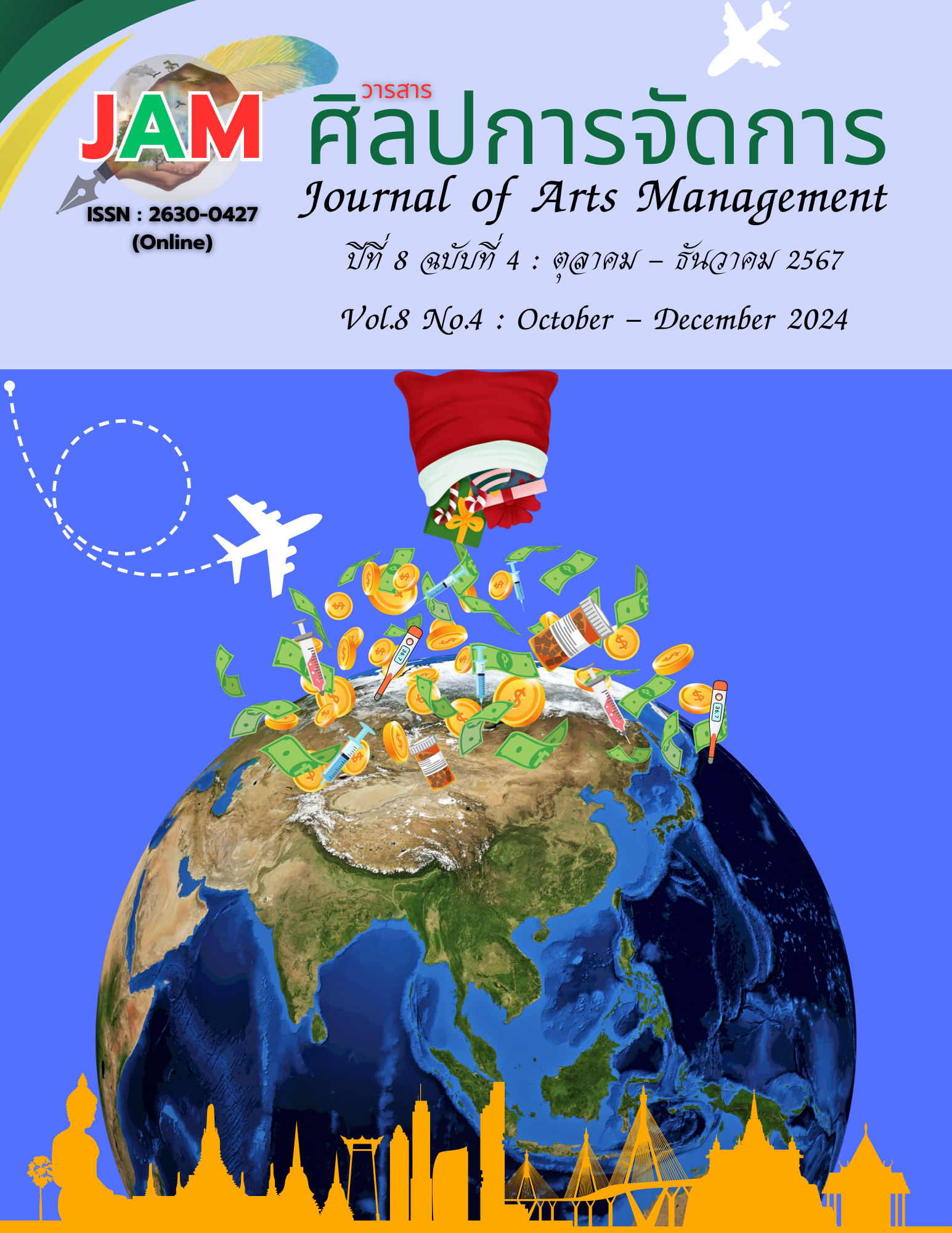A Study of Actual and Expected Situations in Enhancing Smart Citizen Characteristics for Students of Rajamangala University of Technology
Main Article Content
Abstract
The objectives of this research are: 1) to study the characteristics of intelligent citizens for students of Rajamangala University of Technology; 2) to assess the need for enhancing the characteristics of intelligent citizens; 3) to propose guidelines for developing students to have the characteristics of intelligent citizens for students of Rajamangala University of Technology. The research model is a mixed method. The sample group used in this research was divided into 2 groups: 15 student leaders of Rajamangala University of Technology instructors or related persons, and a sample of 400 graduate user groups that recruit students from Rajamangala University of Technology to work. The research tools used interviews and a questionnaire to assess the necessary needs, and the reliability of the questionnaire is 0.969. Data were analyzed using averages, standard deviations, and orders of magnitude. The importance of the average value was calculated using the Priority Needs Index (PNImodified), and the content was analyzed in a descriptive form.
The results of the research found that 1) The characteristics of an intelligent citizen are 4 characteristics: having skills, knowledge, and being able to apply information technology; creative thinking. Learn outside the system and have the skills to live together in a diverse society. 2) The reality is lower than what graduate users expect in every aspect. 3) Guidelines for developing students to have the characteristics of intelligent citizens include developing knowledge and skills in digital technology. Be responsible and ethical. cultivate creativity and problem-solving skills. Raise awareness of cyber security and data protection. Promote participation in the digital community.
Article Details

This work is licensed under a Creative Commons Attribution-NonCommercial-NoDerivatives 4.0 International License.
Views and opinions appearing in articles in the Journal of Arts of Management It is the responsibility of the author of the article. and does not constitute the view and responsibility of the editorial team I agree that the article is copyright of the Arts and Management Journal.
References
Amornwiwat, S. (2003). Learning methods: Expected characteristics at any age. Learning Development Office and Educational Standards Office of the National Education Commission.
Bangkok. (2019). Bangkok Smart City. Photocopy.
BBC English Dictionary. (1993). BBC English. HarperCollins.
Bonwell, C.C., & James, A. E. (1991). Active learning: Creating excitement in the classroom. ERIC Digest.
Chaiyakham, S., & Wongthanasu, S. (2020). The comparison of indicators for smart people evaluation. Academic Journal of the Pacific Institute of Management Sciences, 6(2), 225-234.
Cochran, W.G. (1953). Sampling techniques. John Wiley & Sons.
Digital Economy Promotion Agency. (2022). Creating innovative government organizations and urban development in genius Thailand. https://www.depa.or.th/th/article-view/innovation-goverment
Giffinger, R., Fertner, C., Kramar, H., & Meijers, E. (2007). Smart cities ranking of European medium-sized cities. http://www.smart-cities.eu/download/city_ranking_final.pdf
Kerr, J.S. (1969). A Christian’s dictionary: 1,600 names, words and phrases. Fortress. Mackinnon, D.W. (1960). In search of human effectiveness: Identifying and developing creativity. Creative Education Foundation.
Numnon, T. (2022). Important changes in the world that are more than digital technology. https://www.bangkokbiznews.com/columnist/999342
Office of the Election Commission. (2020). Training manual according to the quality citizenship curriculum. Office of the Election Commission.
Oxford English Reference Dictionary. (1993). The Concise Oxford Dictionary of English Etymology. Paperbacks.
Panitchaplinchai, T., & Panitchaplinchai, C. (2017). Citizenship of students at the bachelor’s degree, Naresuan University. Sakthong: Journal of Humanities and Social Sciences (SOM.), 23(1), 1-13.
Panmun, J. (2018). Research report. Guidelines for strengthening awareness of good citizenship for students at Rajamangala University of Technology Suvarnabhumi. Rajamangala University of Technology Suvarnabhumi.
Phonsim, S. (2018). Definition, components, indicators and results of being a smart city. College of Local Administration, Khon Kaen University.
Pra Mahadisuk Tachapunyo (Jomrum). (2012). Implementation of desirable characteristics performed by students in the second class-range at Ban kaew School, Muang, Chanthaburi[Master’s thesis, Rambhai Barni Rajabhat University].
Ratchapolsit, K. (2006). Desired and actual characteristics of graduates. Faculty of Education, Chiang Mai University.
Thailand Smart City Office. (2021). Promotion of smart cities. https://www.depa.or.th/th/smart-city-plan.
United Nations. (2014). World Urbanization Prospects: The 2014 Revision (Highlight). Department of Economic and Social Affairs, United Nations.


